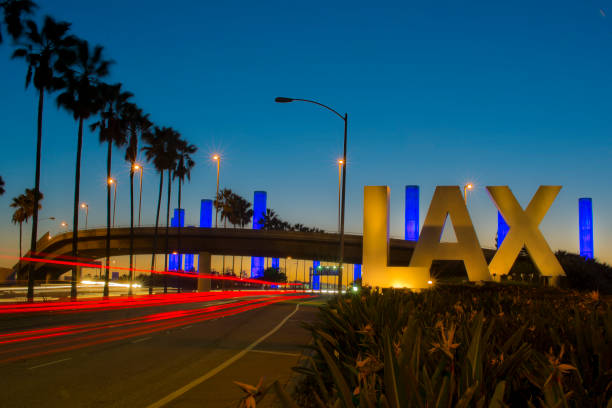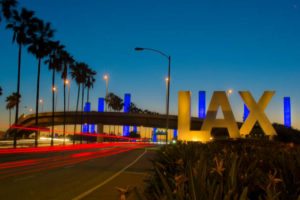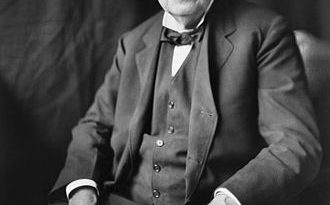As Southern California reopens further, residents weigh the risks.
TOP STORIES
Too Soon to Return to Normality?
With the COVID-19 vaccine rollout expanding, coronavirus cases flattening and stay-at-home restrictions lifting, Southern California is coming back to life.
Some merchants are reporting their best business since the pandemic began. Griffith Park saw such a crush of visitors during Easter Sunday that it had to temporarily turn people away. Many of those out and about have been vaccinated, and there were signs people were generally following various safety protocols.
But wariness remains among many, with the ever-present question: Is it too much too soon?
Health officials and experts continue to urge residents to remain vigilant, especially as the state reopens and the number of coronavirus variants continues to grow in California. Other states are reporting new surges that have alarmed federal officials.
L.A. County officials continue taking a cautiously optimistic approach. Although the coronavirus case rate has dropped to a level not seen since the early days of the pandemic, Public Health Director Barbara Ferrer said that still “means that there are hundreds and hundreds of known cases that get diagnosed each day,” though the actual number of people being infected is probably higher.
The next few weeks will be a major test of whether California can avoid more COVID-19 surges, with more reopenings expected and the potential fallout from the Easter holiday still unknown.
More Top Coronavirus Headlines
— The complex logistics of awakening Los Angeles Unified schools are reaching a crescendo this week with officials especially focused on safety. They announced plans to open 25 community vaccination centers and urged all returning families to sign their students up for mandatory coronavirus testing.
— California is on the precipice of administering 4 million COVID-19 vaccine doses in its most disadvantaged areas — a hurdle that, when cleared, would trigger a rewrite of the state’s reopening blueprint to make it easier for counties to more widely reopen businesses and other public spaces.
— Many still hesitate to get a vaccine, but reluctance is easing.
For more, sign up for Coronavirus Today, a special edition of The Times’ Health and Science newsletter.
Some Landlords Struggle Too
Amid the COVID-19 pandemic, officials have sought to avoid a wave of evictions, homelessness and the spread of deadly disease that could result. Governments enacted rules allowing people whose finances have been affected by the pandemic to keep their housing if they don’t pay rent.
The policies have been a lifesaver for many during a crisis when staying home meant staying healthy, but a year later many landlords say the rules are heaping an increasingly unfair burden on them.
In interviews with The Times, property owners and managers said they understood the unprecedented nature of the crisis but said they are absorbing too much of the cost. Many said they or their clients are dipping into savings to keep properties afloat and delaying maintenance or repairs because they can’t afford them. Some said they probably can’t or won’t hold on much longer under these circumstances.
What’s in a Name?
In January, the San Francisco Board of Education voted 6 to 1 to rename more than 40 schools, as supporters cheered the board for “unapologetically” targeting historical figures they deemed racist, including Abraham Lincoln.
Today, that same board is expected to approve a resolution that would officially suspend renaming efforts. It comes after a political furor that subjected the school board to local and national ridicule and roiled the city, distracting local leaders from the pandemic, angering parents eager for classrooms to reopen and putting school board members — some of whom face a potential recall by voters — on the defensive.
The school board will return to the renaming issue later — after students are back in classrooms full time, the board’s leader said. That means it will leave unresolved the question of what names are culturally appropriate in San Francisco, a city whose name originated from Spanish colonialists.
.
Ads by: Memento Maxima Digital Marketing
@[email protected]
SPACE RESERVE FOR ADVERTISEMENT
In 1966, the UCLA Institute of Transportation and Traffic and the National Safety Council set up a series of tests to study the safety of school buses. In one, conducted in April, researchers rigged a bus from 1944 to collide head-on with a 1965 model at 30 mph at Terminal Island Naval Station.FROM THE ARCHIVES
The Times reported that the 1965 model fared better: Thirteen of 36 crash test dummies received damage that equated to critical or fatal injuries. The 1944 bus held one dummy and sandbags to represent students; a UCLA research engineer told The Times that everyone on that bus would have been “wiped out.”
The findings were later presented to Congress and helped usher in new safety standards for school buses.
.
April 5, 1966: Two buses are crashed together on Terminal Island by UCLA traffic safety experts. (Joe Kennedy / Los Angeles Times)
CALIFORNIA
— Transgender, intersex and nonbinary inmates now have the right to choose whether to be housed in a male or female prison. Here’s how the new law is playing out.
— The Long Beach Convention Center is poised to become the second temporary facility in California to hold migrant children who traveled to the southern U.S. border without their parents or legal guardians.
— “This is my home. I’m not going anywhere”: Victims of anti-Asian rhetoric meet in Orange County to show solidarity.
— James R. Mills, a retired San Diego state legislator who was a champion of public transportation and historic buildings, has died at age 93.
Support our journalism
Subscribe to the Los Angeles Times.
.
Ads by: Memento Maxima Digital Marketing
@[email protected]
SPACE RESERVE FOR ADVERTISEMENT
|
NATION-WORLD
— The Supreme Court sided with Google in an $8-billion-plus dispute over its use of about 11,500 lines of code copyrighted as part of Oracle’s Java platform. The case has far-reaching implications for the tech industry.
— Testifying in the murder trial of Derek Chauvin, Minneapolis’ police chief said that the officer had used excessive force and broken department policy when he pinned George Floyd under his knee for 9 minutes and 29 seconds.
— Nearly two years after Denver made history and decriminalized hallucinogenic mushrooms, the nightmares that opponents feared haven’t materialized. But the legal environment remains fraught, limiting their medicinal use.
— Harvey Weinstein has formally appealed his New York rape conviction. The filing comes ahead of a hearing on his potential extradition to California on similar charges.
— In the weeks since the Atlanta shootings, the tragedy has upended outdated stereotypes about Asian Americans and exposed the country’s largest racial income gap.
HOLLYWOOD AND THE ARTS
— Hollywood has overlooked the 50-plus audience. Producer Amy Baer aims to change that.
— The L.A. Stage Alliance announced that it is immediately ceasing all operations after mistakes in the group’s Ovation Awards show — including the misidentification of an Asian American nominee — led dozens of theaters to revoke their membership.
— The true story behind Netflix’s new crime drama “The Serpent” was too bizarre for TV.
— Green Bay Packers quarterback Aaron Rodgers is a big fan of “Jeopardy!” — such a big fan, he’d be willing to turn his temporary hosting gig into a full-time one.
BUSINESS
— U.S. Treasury Secretary Janet Yellen urged the adoption of a minimum global corporate income tax, an effort to help bolster the Biden administration’s proposal to raise corporate taxes.
— Tribune Publishing will talk with a group that has offered $680.8 million for the newspaper publisher, saying it is likely to beat out an accepted $634.8-million takeover offer from hedge fund Alden Global Capital.
SPORTS
— Denver’s Coors Field is expected to be announced as the site of this year’s Major League Baseball All-Star game, according to a person familiar with the decision but not authorized to speak publicly. MLB stripped Atlanta of the game after Georgia adopted new voting rules.
— UCLA’s season ended in defeat, but the men’s basketball team still got close to NCAA victory. If the same players are set to return next year, they could get a second shot at a stellar season. Meanwhile, Baylor won its first national title, spoiling Gonzaga’s perfection.
Free online games
Get our free daily crossword puzzle, sudoku, word search and arcade games in our new game center at latimes.com/games.
OPINION
— President Biden must make it clear that his administration is willing to move quickly to lift the sanctions reimposed by Trump if Iran agrees to return to full compliance with the agreement, The Times’ editorial board writes.
— The takeover of Bruce’s Beach was more than a racist land grab by Manhattan Beach. It destroyed a leisure space key to Black identity, social networking and economic development, writes Alison Rose Jefferson, a scholar in residence at Occidental College.
WHAT OUR EDITORS ARE READING
— When the power went out, Texas oil and gas regulators rushed to defend the industry’s image. (Texas Tribune)
— The Guardian and Consumer Reports sampled tap water across the U.S. and found arsenic, lead and toxic chemicals.
ONLY IN L.A.
The Hearst estate in Beverly Hills — a Mediterranean Revival-style mansion with a 29,000-square-foot main house designed by the architect of the Hoover Dam — just relisted for $89.75 million. It’s a massive markdown, with a bankruptcy court forcing the sale, but it’s still a bundle. After all, not too many places can boast of having served as a honeymoon destination for Jacqueline and John F. Kennedy — and as the backdrop for a famous scene involving a horse’s head in “The Godfather.”
Comments or ideas? Email us at [email protected]. |















